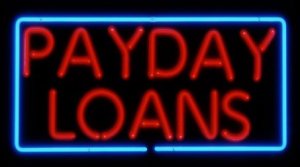Dear Liz: I worked for a company during the late 1990s. When I left, I had a 401(k) worth approximately $10,000. I recently found an old 401(k) statement and called the plan administrator. I was told my company’s accounts had been transferred to another plan administrator in 2008. I called the new administrator and was told they also could not find my 401(k) using my Social Security number. How do I proceed? What are my options?
Answer: Get ready to make a lot more phone calls.
There’s no central repository for missing 401(k) funds — at least not yet. The Pension Benefit Guaranty Corp., which safeguards traditional pensions, has proposed rules that would allow it to hold orphaned 401(k) money from plans that have closed. That wouldn’t start until 2018. Another proposal, by Sen. Elizabeth Warren (D-Mass.) and Sen. Steve Daines (R-Mont.), would direct the IRS to set up an online database so workers could find pension and 401(k) benefits from open or closed plans, but Congress has yet to take action on that.
If your balance was less than $5,000 — which is possible, given the big market drop in 2008-2009 — your employer could have approved a forced IRA transfer and the money could be sitting with a financial services firm that accepts small accounts. If the plan was closed and your employer couldn’t find you, the money could have been transferred to an IRA, a bank account or a state escheat office. You can check state escheat offices at Unclaimed.org, but searching for an IRA or bank account may require help.
If your employer still exists, call to find out if anyone knows what happened to your money. If the company is out of business, you may be able to get free help tracking down your money from the U.S. Department of Labor (at askebsa.dol.gov or (866) 444-3272) or from the Pension Rights Center, a nonprofit pension counseling center (pensionrights.org/find-help). Another place to check is the National Registry of Unclaimed Retirement Benefits, a subsidiary of a private company, called PenChecks, that processes retirement checks, at www.unclaimedretirementbenefits.com.
One more wrinkle: Your employer or a plan administrator could insist you cashed in your account at some point. You may be able to prove otherwise if you’ve kept old tax returns, since those typically would show any distributions.
Your experience shows why it’s important not to lose track of old retirement accounts. Your current employer may allow you to transfer old accounts into its plan, or you can roll the money into an IRA. Either way, it’s much better to keep on top of your retirement money than to try to find it years later.
 Today’s top story: What happens when you can’t repay a payday loan. Also in the news: How to upgrade your old car with new-car tech, why women may face retirement shortfalls despite the closing pay gap, and the biggest complaints about 401(k)s.
Today’s top story: What happens when you can’t repay a payday loan. Also in the news: How to upgrade your old car with new-car tech, why women may face retirement shortfalls despite the closing pay gap, and the biggest complaints about 401(k)s. Today’s top story: NerdWallet’s best credit card tips for December. Also in the news: How to tell if a Roth 401(k) is for you, why postdating checks is a waste of time, and how many credit cards you should have.
Today’s top story: NerdWallet’s best credit card tips for December. Also in the news: How to tell if a Roth 401(k) is for you, why postdating checks is a waste of time, and how many credit cards you should have. Today’s top story: Frightening types of 401(k) fees. Also in the news: It’s time for open enrollment, how to avoid bringing zombie debt back from the grave, and the staggering amount of money behind all things pumpkin.
Today’s top story: Frightening types of 401(k) fees. Also in the news: It’s time for open enrollment, how to avoid bringing zombie debt back from the grave, and the staggering amount of money behind all things pumpkin. Today’s top story: How to tell if your 401(k) is a dud. Also in the news: How to find unclaimed property, great tax deductions for retirees, and how to sneak more savings into your budget.
Today’s top story: How to tell if your 401(k) is a dud. Also in the news: How to find unclaimed property, great tax deductions for retirees, and how to sneak more savings into your budget. Three key decisions about retirement benefits can help couples make their money last — or dramatically increase the chances the survivor will end up old and broke.
Three key decisions about retirement benefits can help couples make their money last — or dramatically increase the chances the survivor will end up old and broke. Today’s top story: Why long-term care insurance is worth the expense. Also in the news: The differences between a 401(k) and a Roth 401(k), how to make yourself a better retirement saver, and keeping an eye out for electricity surge pricing.
Today’s top story: Why long-term care insurance is worth the expense. Also in the news: The differences between a 401(k) and a Roth 401(k), how to make yourself a better retirement saver, and keeping an eye out for electricity surge pricing. Today’s top story: How to find the best mortgage rate online. Also in the news: How to set up your first 401(k), what happens if you work after signing up for Social Security, and why we value purchases more when we pay with cash.
Today’s top story: How to find the best mortgage rate online. Also in the news: How to set up your first 401(k), what happens if you work after signing up for Social Security, and why we value purchases more when we pay with cash. Today’s top story: Scams to watch out for. Also in the news: Understanding Social Security spousal benefits after divorce, fixing a critical 401(k) flaw, and new airline luggage fees.
Today’s top story: Scams to watch out for. Also in the news: Understanding Social Security spousal benefits after divorce, fixing a critical 401(k) flaw, and new airline luggage fees.